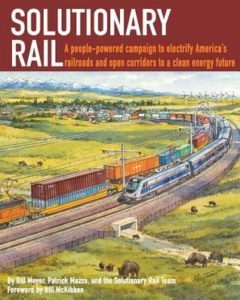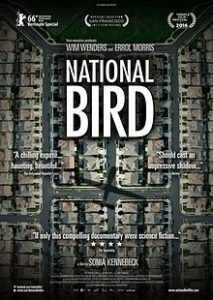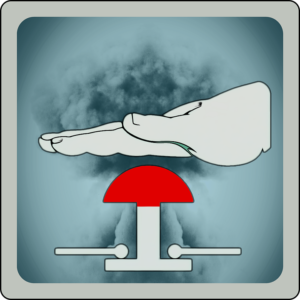Rivera Sun's Blog: From the Desk of Rivera Sun, page 17
March 9, 2018
We are the Legends of Tomorrow

Image from Creative Commons CCO. Support the Commons!
An Essay of the Man from the North
by Rivera Sun
The clock is ticking. Tick. Tick. Tick. Can you hear it? We have only . . .
One minute, 48 seconds until United States poverty claims another life.
Two minutes until midnight, with nuclear annihilation looming.
25 hours and 21 minutes until the next mass shooting.
28 hours until the next Black citizen is shot by the police.
10 years give or take, until the effects of climate change send us hurtling toward extinction.
The question of action is when, not if. We must leap into the unknown, for the known world is dying and will surely kill us if we stay. It is only a matter of time: minutes, hours, years . . . no more than that. The path we are on is doomed, disastrous, and deadly.
Yet, we fret about repaying 20 or 30 year-long debts. We worry about losing pensions and retirement plans. We buy houses and plan to sell them in a decade. When the politicians outrage us with yet another abuse, we are quick to swear we’ll vote them out of office in two or four years. Why can we not remind them that resignations and impeachments can strike as swiftly as lightning in a summer storm? If we can think years ahead in this ticking time bomb of a self-destructive system, then why can we not envision another world and commit to the journey-quest of getting there?
This is the moment for each of us to dare to dream beyond the rigid constructs of today, to envision a better world and strive for it with all of the courage and passion of the heroes of our much-loved tales. We must untether our lifeboats from the sinking ship of our culture and cast off into uncharted waters. Vision is our compass, the magnetic pull of what could be. Nonviolent action serves as our sail and hull, the mechanisms of our vehicle of change. Our hearts must be our tiller, guiding us through troubled waters. The wind that propels us is necessity, the mother of invention, grandmother of human evolution.
Now is always the time to act. Now is the time for revolutionary change. Now is the time to risk all to gain all – everything we know is already at risk. The time for change is always now. It is the only time we have.
Adventure is at hand. We need not look to movies or books to touch the thrill of epics and myths. We are the Frodos of our time. We are the Company that joined him. The fate of our world hinges not on good vs. evil, but on the life-sustaining vs. the destructive. If you look closely, that is what all great epics revolve around. Beneath the rhetoric of morality and religion, that which affirms life is lifted up as “good” and that which destroys, discriminates, and oppresses is labeled “evil”. Human existence has grown from these truths. Evolution has been built on honoring the life-affirming and rejecting greed-based destruction.
Today, we have a secret power of which the writers of the older myths could scarcely dream: nonviolent action gives us tools with which to deconstruct the machinery of destruction and to construct new ways of life. Never in his wildest dreams did Tolkien imagine that his heroes could save their world while avoiding becoming the violence-wielding cruelty they opposed, but our myths and legends can be built on the knowledge won by the nonviolent warriors of our times: Gandhi, King, Chavez, Gbowee, Thich Nhat Hanh, and millions more whose names we do not know, but whose struggles stand immortalized by time, their feats of nonviolent strength having built any shred of justice or liberty we enjoy at this point in time.
We are living legends that could never be imagined by the storytellers of times past. The 11th hour of our world is at hand. But beware! All the secret powers of all the vast myths and epics ever told will not save us if we do not use them. The time has come to put aside the trappings of ordinary life. We must pick up the tools that will turn our lives into the legends of tomorrow.
The clock is ticking . . .
_______________________
The Man from the North is a fictional writer in Rivera Sun’s novel, The Dandelion Insurrectio n. The novel takes place in the near future, in “a time that looms around the corner of today,” when a rising police state controlled by the corporate-political elite have plunged the nation into the grip of a hidden dictatorship. In spite of severe surveillance and repression, the Man from the North’s banned articles circulate through the land, reporting on resistance and fomenting nonviolent revolution. This article is one of a series written by The Man from the North, which are not included in the novel, but can be read here . Author/Activist Rivera Sun is syndicated by PeaceVoice .
February 21, 2018
Stopping Mass Shootings: Less Finger Pointing, More Action

Image via Creative Commons CCO
In the wake of yet another school shooting, everyone from ordinary citizens to pundits to politicians seem to be engaged in one of our favorite and least effective responses: finger pointing and passing blame. It’s like a toxic and deadly game of hot potato. The NRA shrieks and throws the blame onto mental health. Mental health advocates holler and toss it toward schools and parenting. Teachers and parents reel in grief and horror and throw the issue at politicians. Legislators try to drop the issue as their donors and lobbyists screech at them – or they lob it at their opposition like a political weapon.
Shirking our responsibilities on this issue is negligent, egocentric, and at this point in our crisis, utterly shameful. Mass shootings do not have silver bullet solutions. There is no single change we can make that will end this tragic horror that haunts our communities. School shootings – and other mass shooting events – arise amidst a toxic storm of potential causes. In some way or another, they are all related. Instead of pointing fingers, every industry, social sector, agency, and organization that has even the remotest connection to the problem should step up to resolve their piece of the puzzle.
Here are just a few ways the tangled web of causes underlying school shootings could be unraveled by all of us.
Imagine a world in which:
Politicians, valuing our children more than the NRA, supported at least another moratorium on assault weapon sales (like we had from 1994-2004) until it is shown that there is no connection between these weapons and mass shootings. Or, seeing the success of nations that banned assault weapons (such as Australia), our politicians found the moral courage to defy the NRA and give it a try.
The NRA, eager to demonstrate their points with solid data, supported the politicians in the moratorium, and went even further to address and resolve the underlying issues that compel people to pick up guns and commit murder. Funding programs to address violence, mental health, anti-bullying, and more, they actively worked to show that if “guns don’t kill people; people do”, then they want to be a part of the effort to make sure people don’t use assault weapons for mass shootings.
Campaign donors refused to donate to politicians who aren’t actively working to end mass shootings, like Republican donor Al Hoffman, Jr. just did.
Gun sellers refused to sell automated assault weapons, instituted store policies of longer wait periods and better background checks. Major corporations followed in Walmart‘s footsteps and stopped selling assault rifles altogether.
Legislators, seeing the wisdom in the teachers’ call to support our youth’s social, emotional, and psychological needs, voted to give our teachers and schools the broader resources and funding they have requested.
Pharmaceutical companies, on the off-chance that their psychiatric and anti-depressant drugs are triggering mass shootings, recalled their products that include known side effects of violent urges, or funded better follow-up with patients to prevent violent episodes.
Schools and students, recognizing that bullying causes isolation, alienation, and aggression in youths and has been connected to several school shootings, mobilized broader support and engagement with anti-bullying programs, specifically reaching out to students who are being alienated.
Parents, counselors, and others, identifying a connection between domestic/dating violence and many school shootings, launched intervention programs that successfully taught youth other ways to handle conflict than violence.
Video game companies, appalled at the possible connection between violent games and youth assaulting other youth, shifted their gaming concepts dramatically.
Hollywood, likewise concerned about their role in the glorification of violence, sought out scripts and directors who used less violence in movies.
Mental health professionals, knowing both the uses and limits of their field, came together to help communities strategize an effective approach for dealing with the challenges we face.
The military, concerned by the chance that JROTC programs indoctrinate and train people who become mass shooters, enacts a moratorium on their programs in K-12 schools.
The military industrial complex, recognizing the potential connection between militarization and the culture of violence, and between weapons manufacturing, the NRA, and domestic weapons sales; became a voice for demilitarization.
Our communities as a whole identified the many manifestations of the culture of violence and joined movements and campaigns like Campaign Nonviolence that seeks to shift the United States to a culture of peace and active nonviolence.
White supremacist groups, acknowledging that adherents to their beliefs have perpetrated horrific crimes, actively worked to de-escalate the violence of their ideologies. Meanwhile, the rest of us, recognizing that supremacy is a form of violence and that these groups use physical violence as a form of supremacist terror, pushed adherents of these beliefs to connect with campaigns like Life After Hate which helps people leave hate groups.
Parents, Men, and Supporters, seeing how toxic masculinity connects to extreme violence, take active steps to unravel the beliefs and worldviews, replacing them with constructive alternative narratives.
Citizens, seeing the broad systemic crisis of alienation, despair, and isolation that a hyper-capitalist society can create, work in numerous ways to reweave the fabric of community and build more meaningful, connected ways of life.
Politicians, judges, and citizens, recognizing the lives lost due to lack of political action on this issue, worked together to overturn Citizens United, getting money out of politics and returning political power back to the people. A functional democracy responds to the needs of its citizens, not the greed of its lobby groups.
These are just some of the ways we could be addressing the tragedy of school shootings. Many of these groups or individuals are pointing the finger elsewhere, and trying to cast off any culpability in these tragedies. Instead, we could all step up to the plate and take responsibility. If there is even the slightest shadow of possibility that our industry or profession is connected, our love for our children and fellow human beings should be great enough to take action to change.
If we are committed to ending these shootings, we don’t need to argue about which one of these is the way to fix the problem. Our children – and fellow human beings of all ages – are worth shifting gears and working in diverse ways toward the common goal. Wherever we see a possibility of connection, we can work to fix that part of the problem, applying our energy to solutions. The silver lining is that each and every single one of these issues is a problem in-and-of itself. Addressing them all increases the health and well-being of our whole society. Find a point of intervention and go to work.
_____________
Author/Activist Rivera Sun , syndicated by PeaceVoice , is the author of The Dandelion Insurrection and other books, and the cohost of Love (and Revolution) Radio .
February 17, 2018
The Rule of the Rich and the Last Hurrah
 An Essay of the Man From the North
An Essay of the Man From the North
by Rivera Sun
Rich people rule, make no mistake. They have ruled for centuries, and the toll of their reign has been high. At their feet can be laid the bodies of every child starved in a world with surplus food; every person who freezes to death in the streets while there are six empty houses for every homeless person; every death from lack of affordable healthcare; and the incalculable casualties of the world’s wars – which have all had the wealthy at the helm. Colonization’s genocides, slavery’s murders, and the living death of mass incarceration can all be added to the oligarchy’s tally.
Most damning, we can now add the looming threat of mass extinction to the track record of the rich – for they are the ones who obscured climate science, who promoted denialism to protect fossil fuel profits, and who still obstruct the necessary transition to sustainable practices. Make no mistake: the rule of the rich has been a deadly epoch for humanity.
We cannot compare the effect of the rule of a whole populace empowered by democracy. In this country, the wealthy hijacked the idea of democracy starting in 1787 when the Constitution excluded everyone but propertied white males. There are few examples of full-constituency, class-balanced democracy throughout human history. In no case can the scale of destruction be compared to what the rule of the rich has done.
We owe them no allegiance. They have shown their reign to be dangerous, deadly, and destructive. We owe it to ourselves, our communities, humanity and the Earth to utterly resist their continued rule. We must reject their propaganda. We must recognize it on billboards and movie screens. We must learn to see how it masquerades in education and spouts from the mouths of politicians. Every sector of our lives currently serves to prop up the rule of the rich, their ideologies and worldviews. Effective resistance begins by silencing our cheers and breaking our silence when the next dose of propaganda is being spoon-fed to the nation.
It is not a matter of “good” billionaires vs. “bad” billionaires. Like benevolent dictators, the system itself is rotten to the core. It will never represent the needs of the people. There are no safeguards against tyrants. Those who cheer on their favorite gladiator of a billionaire are deluding themselves about the nature of power and wealth. Billionaires can turn the sharp swords-edge of their power against you. Their economic empires will subjugate you for profit. It is foolish to applaud philanthropy without examining the sources of the fortune. Do not let the rain of money blind you. Beneath the glamour lies a complex equation that nets a savings for your favorite wealthy darling of a donor, privatizing the use of money while robbing it from any hope of democratic application that taxation might have offered. Those fortunes showered on charities and foundation grants have been skimmed from wages, market manipulation, high-priced products, and often government subsidies.
There are no “good” plutocrats, not when you look closely. You can have democracy or you can have the rule of the rich. You cannot have both. On their side, the rich offer a hedonistic last hurrah, an orgy of plundering and partying for a brief firework-explosion of a moment before the unending eternity of extinction. On our side, we lift the glimmer of hope, the tendril-seed chance of life.
You choose.
_______________________
The Man From the North is a fictional writer in Rivera Sun’s novel, The Dandelion Insurrectio n. The novel takes place in the near future, in “a time that looms around the corner of today”, when a rising police state controlled by the corporate-political elite have plunged the nation into the grip of a hidden dictatorship. In spite of severe surveillance and repression, the Man From the North’s banned articles circulate through the American populace, reporting on resistance and fomenting nonviolent revolution. This article is one of a series written by The Man From the North, which are not included in the novel, but can be read here .
Author/Activist Rivera Sun, syndicated by PeaceVoice, is the author of The Dandelion Insurrection and other books, and the cohost of Love (and Revolution) Radio.
February 3, 2018
The Occupied Territory of the United States of America

Image from Creative Commons. Support the Commons!
An Essay of the Man From the North
by Rivera Sun
It happened so subtly, we missed the corporate coup. Like shadows, corporations surrounded our country and slowly strangled it. They crept into Congress, the White House, the Supreme Court, the FDA, the military, the Department of the Interior: everywhere you look, a corporation controls the decisions of this nation. We have become the occupied territory of brand names, corporate logos, monopolistic power, and corporate greed.
It would be easier to understand what has happened if they wore red armbands and goose-stepped. But no, the minions of corporate power wear false smiles, carry empty promises, and fly in private jets. The less-powerful rank-and-file of the corporate state look like our neighbors, relatives, friends. They are not our enemy. It is the destructive behaviors of the corporate state, and its occupation of our government, culture, and society that we must rebel against.
Every aspect of our lives has become an extraction zone for the insatiable hunger of corporate greed. They take our labor, sweat, and time. They steal our work, ideas, inventions, even thoughts. Their extortionist prices devour our earnings. They supplant our culture with theirs. They replace education with corporate programming. They broadcast propaganda and advertisements instead of news. They pass policies and legislation that maximize profits instead of protecting people and planet. They privatize the public assets built by collective investment. They take the resources of the land and dump the costs of destruction onto future generations. They tax our earnings to fund police and military that guard their interests. They suck up our life savings through health costs that come from the toxic side effects of their greed.
The corporate state gives us back mere illusions of freedom. Behind the smoke and mirrors, empty rhetoric and false words, lies a clenching fist of control. The moment you step out of line or dare to dissent, you run smack into the invisible electric fences of their laws and police. If you stay within their boundaries, they reward you by allowing you to think you have consumer choices. Each option funds their stockpiles of wealth, but you’re permitted to fantasize that you can vote with your dollars for the lesser of two evils.
We are occupied territory from sea to shining sea, from urban to rural region, from our outer edges to our inner souls. The corporate state extracts profits from every angle of our lives. To win independence requires inner, outer, and utter revolution. It demands that we put the tools of nonviolent struggle to work toward changing every aspect of our lives – social, economic, political, spiritual, cultural, mental. If we wish to end the occupation of the corporate state, we must turn our lives inside out and upside down until they serve us, and not the other way around.
Rise up. Rebel. Throw the occupiers out.
_______________________
The Man From the North is a fictional writer in Rivera Sun’s novel, The Dandelion Insurrectio n. The novel takes place in the near future, in “a time that looms around the corner of today”, when a rising police state controlled by the corporate-political elite have plunged the nation into the grip of a hidden dictatorship. In spite of severe surveillance and repression, the Man From the North’s banned articles circulate through the American populace, reporting on resistance and fomenting nonviolent revolution. This article is one of a series written by The Man From the North, which are not included in the novel, but can be read here .
Author/Activist Rivera Sun, syndicated by PeaceVoice, is the author of The Dandelion Insurrection and other books, and the cohost of Love (and Revolution) Radio.
Bring On Solutionary Rail!

Learn more at http://www.solutionaryrail.org/
It’s not every day that you run across an idea so elegant, so eminently practical that your jaw literally drops as you stagger beneath the shock of your huge “aha” moment. Solutionary Rail did that for me. Rail experts and long-time activists from Backbone Campaign have struck gold with their well-researched proposal to electrify America’s railroads.
Solutionary Rail: a people-powered campaign to electrify America’s railroads and open corridors to a clean energy future is a book, a proposal, a profound vision, and an exciting multi-pronged solution all rolled into one bundle. Electrifying our rail system to run on renewable energy is just plain good sense. It creates jobs. It reduces carbon emissions. It increases freight transport efficiency. It solves the looming highway repair budget shortfalls. It works toward economic justice for rural and Indigenous communities. It contains an astonishing multiplier effect as it meets the demands of climate change.
So, what’s the drawback? (I can hear you, oh skeptics.) The usual: money and political willpower. The Solutionary Rail team addresses those concerns with interestingly palpable solutions. To deal with the hefty investment required to transition to electrified rails, they propose a public-private partnership that minimizes the profit-motive from the investor side. It’s not a new idea. It’s how the original rail system was built. And speaking of old-fashioned ideas turned new, electric rail was actually a viable part of our railroading history. In the 1960s, however, internal politics and the development of the interstate highways that sank electric rail, even though the system was far more economical and efficient than diesel.
United States citizens have long bemoaned the sad state of our rails. As an avid rail rider myself, I’ve traveled across our beautiful country by train more times than I can count. It’s amazing. The rail lines are national (and neglected) treasures. You can see the heart and soul of the United States from these routes less-traveled. Also, when riding trains, you hear and see your fellow Americans in ways you never do while shuffling through airport security or crammed into your tiny airplane seat. My personal experience is that train travel has deepened my respect and appreciation for our staggering diversity, and opened my eyes to the complexity that is integral to our country. Revitalizing rail travel holds some unusual bonuses, such as a deepened understanding of the vast terrain and tangible unique diversity of this nation. It might rekindle our experiential understanding of our incredible ecosystems, and also remind everyone of the small towns, rural regions, urban corridors, water ways and mountain crossings that are hidden from the view of the interstate highway system.
Solutionary Rail offers us a vision for transforming our railroads and creating jobs along the way. In a nation the size of the United States, rail travel and transport makes nothing but sense. Solutionary Rail shows that electrified rail is more than feasible. It’s being done around the world. Seventy percent of Russia’s freight lines are already electrified. Ninety percent of France’s passenger rail trips are on an electrified system. Renewable energy experts demonstrate that we have the renewable resources to run our rails on solar and wind. In the book, railroad engineers also explain how electric engines can even generate energy while braking.
And, where the political willpower is lacking, well, that’s Backbone Campaign’s specialty. They’re skilled campaigners for change – if anyone can put Solutionary Rail on the national agenda, it’s them. Pairing their knowledge with the expertise of railroad engineers, and renewable energy experts, it takes Solutionary Rail out of the realms of dreams and halfway into reality. Their proposal is well-researched, solid, and tantalizingly possible. The Solutionary Rail book includes action steps for citizens to get involved in the campaign to bring this proposal to the plates of policy makers and power holders. The sooner, the better, I say!
________________
Author/Activist Rivera Sun, syndicated by PeaceVoice, is the author of The Dandelion Insurrection and other books. She is a nonviolent strategy trainer and a regular contributor to journals across the country.
January 28, 2018
Here Be Monsters

Image from Creative Commons CCO. Support the Commons!
An Essay of the Man From the North
by Rivera Sun
In ancient times, the unknown edges of maps held the words, Here be dragons. We’ve journeyed into those unexplored territories, and found not dragons, but monsters of our own creation, behemoths of the corporate state, which, like golems, rise to strength and power, undead and yet, not living.
Here be monsters. Not the old fire-breathing horrors, but a more ordinary, terrifying sort of creature. Corporations are a mixture of humanity’s greatest nightmares, capable of poisoning, impoverishing, terrorizing, engulfing, and devouring the land, the water, whole villages, the Earth. They spread like barnacles throughout the world, sucking up wealth at every storefront, hoarding it in oligarchic treasure troves while we, the peasants, starve. They throw back pittances in wages for those who toil to feed the bottomless maw of these monsters’ greed.
We have made tragic sacrifices to appease them. They devour us, still. They blacken the skies with foul fumes. The toxic ash from their factories’ flames poisons streams. The wildlife has fled in mass extinctions, never to return. From era to era, politicians rise to power, backed by monsters’ wealth. They ignore our pleas for mercy.
People await a hero – a shining knight or plucky lass – to do our dirty work and rid us of these horrors. They expect someone else to risk their neck while they cower in their huts. This is outdated, fantastical thinking. No one is coming to save us. The next election cycle will not bring a St. Michael or Galahad to combat these monsters. In our modern world, the corporations sit on thrones of kings. They pay for the armor of the knights. The so-called champions work for them. The modern knights don’t help the people – they joust in tournaments to win tokens from the oligarchic royalty. There’s no hope for us in these kind of heroes.
Do not wait to be saved by someone else. Rise up! Train in the modern arts of conflict, pick up the tools that have won freedom and driven monsters from contemporary lands. Nonviolent struggle is the only way to rid ourselves of the sprawling nightmares of the corporate state, the monsters that enslave and impoverish our people. Organized, collective struggle is the only way to stop the deadly sacrifices of human lives. Our land, water, and air will lie in wreck and ruin until these monsters are banished once and for all. We will be kept in misery until the kings and overlords who serve the monsters are dethroned.
And we must do it now. Don’t waste another day scanning the horizon for a hero. Already the next sacrifice is being chosen. Is it your neighbor? Your daughter? Your coworker, mother, friends?
If you don’t join the struggle for widespread change, how long will it be before the next sacrifice to the corporate monsters . . . is you?
_______________________
The Man From the North is a fictional writer in Rivera Sun’s novel, The Dandelion Insurrectio n. The novel takes place in the near future, in “a time that looms around the corner of today”, when a rising police state controlled by the corporate-political elite have plunged the nation into the grip of a hidden dictatorship. In spite of severe surveillance and repression, the Man From the North’s banned articles circulate through the American populace, reporting on resistance and fomenting nonviolent revolution. This article is one of a series written by The Man From the North, which are not included in the novel, but can be read here .
Author/Activist Rivera Sun, syndicated by PeaceVoice, is the author of The Dandelion Insurrection and other books, and the cohost of Love (and Revolution) Radio.
January 21, 2018
The Laboratory of Democracy
 The United States is a laboratory for democracy – a centuries-long experiment in what does and does not work for people making decisions together. Moments of abject failure and soaring success punctuate long periods of disruption, shut-downs, and the regular ransacking of our laboratory. Our experimental efforts have often been thwarted by undemocratic interests. The equipment has been smashed or corrupted. The results ripped to shreds. The data distorted. The facilities destroyed. The funding cut off. Every aspect of our experiment in democracy has been tampered with by those who fear the will of the people.
The United States is a laboratory for democracy – a centuries-long experiment in what does and does not work for people making decisions together. Moments of abject failure and soaring success punctuate long periods of disruption, shut-downs, and the regular ransacking of our laboratory. Our experimental efforts have often been thwarted by undemocratic interests. The equipment has been smashed or corrupted. The results ripped to shreds. The data distorted. The facilities destroyed. The funding cut off. Every aspect of our experiment in democracy has been tampered with by those who fear the will of the people.
Our research has been pilloried by moneyed interests, leading to misconceptions about democracy. People mock what they do not understand. They equate democracy with mere majoritarian electoral politics, or the dismal status quo of politics in the United States. Democracy is a far vaster, extraordinary field of experimentation, vibrant ideas, unusual practices, and effective tools for shared decision-making and collective self-governance. The practice of democracy engages listening, respect, justice, equality, dialogue, caring, compassion, creativity, shared decision-making, collective strategizing, and conflict resolution. It appears as participatory budgeting, collective public policy crafting, civic dialogues, community discussion practices, ranked choice voting, direct democracy, citizen initiatives, cooperative structures and much more.
If we wish to cast off the shackles of tyranny, the chains of autocratic control, the burden of massive monopolies, the constraints of totalitarianism, and the rule of corporate or oligarchic interests, then we must learn the language of democracy as an ever-evolving poetry of politics. Democracy is more than a noun, it should be a verb, an active practice of shared governance. And, as we resist the injustice of a corporate-controlled state, we must broaden our very definition of democracy.
The old practices of politics allowed this collusion of corporations, rich people, and state power to abuse people and planet. Our democracy must rise in newer, more robust forms reaching into every sector of our governance, whether it be political, social, economic, or otherwise. Democracy is a way of life, not simply voting on candidates every few years.
 We must push our experiments in democracy beyond the known parameters. Looking to the past will not offer us answers for the complexity of today. The Founding Fathers could only see as far as the horizon-lines of their prejudices. They could not imagine the world we live in now, one in which people of color, women, and minorities of every persuasion demand a system of governance that is inclusive, responsive, and responsible to and for the well-being and equality of every citizen, the natural world, and our fellow humanity around the globe.
We must push our experiments in democracy beyond the known parameters. Looking to the past will not offer us answers for the complexity of today. The Founding Fathers could only see as far as the horizon-lines of their prejudices. They could not imagine the world we live in now, one in which people of color, women, and minorities of every persuasion demand a system of governance that is inclusive, responsive, and responsible to and for the well-being and equality of every citizen, the natural world, and our fellow humanity around the globe.
Even in the history of the United States, our notion of politics has been broadened time and time again. Mass movements for greater equality and inclusion began almost as soon as the ink dried upon the Constitution. The United States has always been a work in progress. We must look around at what our fellow humans are doing in places where they have outstripped our inquiries into democracy. We must also look to the unknown, the imagined, the experimental. We must study the possibilities and implement them as experimental practices to build upon.
The United States is a laboratory of practice. As we dethrone the corporate state and rule of the rich, we must also rebuild this laboratory, pick up the wreckage, set up new tests, repair equipment, celebrate discoveries, and fund further investigations. Such inquiry must be a bastion of our efforts to discover the true meaning of democracy; of governance of, by, and for the people, all of them, together.
_______________________
The Man From the North is a fictional writer in Rivera Sun’s novel, The Dandelion Insurrectio n. The novel takes place in the near future, in “a time that looms around the corner of today”, when a rising police state controlled by the corporate-political elite have plunged the nation into the grip of a hidden dictatorship. In spite of severe surveillance and repression, the Man From the North’s banned articles circulate through the American populace, reporting on resistance and fomenting nonviolent revolution. This article is one of a series written by The Man From the North, which are not included in the novel, but can be read here .
Author/Activist Rivera Sun, syndicated by PeaceVoice, is the author of The Dandelion Insurrection and other books, and the cohost of Love (and Revolution) Radio.
January 14, 2018
Corn Syrup Nation – An Essay of the Man From the North

Image from Creative Commons. CCO Support the Commons!
Reject the glossy and sensational for the gritty and educational. Wean your mind from corn syrup and eat your vegetables. We have become a diabetic, cancerous, obese, depressed, anxiety attack ridden culture from the consumption of glitter-sugary corn syrup politics, sound-bite news, vacuous entertainment, and catch-phrase economics. We are commercialized right down to our souls from our mega-churches to our worship of wealth to our brand cults. It is killing us and our world.
Mega-corporations are watching us with horrified fascination as we become the sugar-and-sex addicted lab rats in their button-pushing experiments. Online buying is a quick hit of the primal rush of acquisition hard-wired into humanity from the days of hunting and gathering. Now triggered with a click, we feed this addiction with thousands of clicks per day. We are jittery, strung-out, nervous wrecks. We are as destructive as any addict, recklessly obsessed.
We are zombies of consumption, mindlessly craving the next buzz created by a clever catch-phrase, a sound-bite, an instant download, a one-click buy. This way of life is unsustainable. Worse, it’s soulless.
We are losing our humanity, those qualities that make our species remarkable: intelligence, reflection, compassion, connection, wisdom, creativity, and so much more. The whale surpasses us in altruism. The dolphin rises over our average intelligence. The memory of migratory species surpasses ours – few humans could trek from Canada to Mexico, let alone survive a week in the so-called wilderness. We excel at destructiveness, hoarding, and greed. And, while beavers also alter their environments, no species comes close to causing the types of massive environmental destruction as we do.
Humans possess the capacities to change our world, but we must activate and exercise them for life-enhancing change. We must wean ourselves off the shallowly consumptive corn syrup lives of instant gratification and continuous pleasure. We must restore our health, increase our awareness, apply our intelligence, access our fortitude and determination, and use these strengths to create a way of life that has a future on this planet.
And no one can do this for you. It is the lonely effort of millions, one non-click at a time, one news channel choice at a time, one non-purchase at a time. It is one hour spent in connection instead of consumption. It is one vacuous entertainment replaced with something that contains meaning and depth. It is one moment of mindless pleasure-seeking released in favor of cultivating awareness. This is the path of waking up, of snapping out of sleepwalking before you tumble off a cliff.
Once your eyes are open, look around. The whole culture is stumbling toward catastrophe. Shake the person next to you. Wake up your neighbors. Snatch your children back from disaster.
Take the corn syrup out of your diet of news, media, entertainment, social interactions, purchases, and more. Eat your vegetables of depth and meaning, knowledge, reflection, discourse, presence and awareness. A revolution is inner, outer, and utter, or else it fails to meet its full potential. Do your inner work . . . the personal is political because the political is getting personal. We need change on every level. Revolt against the shallow deadliness of our corn syrup nation. Take back your soul . . . and then let’s take back our country.
___________________
The Man From the North is a fictional writer in Rivera Sun’s novel, The Dandelion Insurrectio n. The novel takes place in the near future, in “a time that looms around the corner of today”, when a rising police state controlled by the corporate-political elite have plunged the nation into the grip of a hidden dictatorship. In spite of severe surveillance and repression, the Man From the North’s banned articles circulate through the American populace, reporting on resistance and fomenting nonviolent revolution. This article is one of a series written by The Man From the North, which are not included in the novel, but can be read here .
Author/Activist Rivera Sun, syndicated by PeaceVoice, is the author of The Dandelion Insurrection and other books, and the cohost of Love (and Revolution) Radio.
National Bird: the Untold Costs of Drone Warfare

There are many subjects that should comprise a US citizen’s required reading – or in this case, viewing – list to make us aware and responsible members of our nation. National Bird, a documentary about the drone warfare program, should be on the list.
Drone warfare wreaks havoc on every life it touches. Not just the obvious victims of drone strikes and their surviving families, but also the US service members who work in the drone program as intelligence analysts and drone operators. National Bird shows the untold devastation of these automated weapons, belying the propaganda that touts drone warfare as an effective and safer alternative to manned warfare.
Of course, all warfare has catastrophic impacts. But drone warfare has been sold to the public like low-fat butter, promising all of the creamy benefits of regular militarized war, with less of the nasty side effects like soldier deaths, PTSD, civilian casualties, and erosion of our prized US freedoms. Each of these issues, of course, has been a hidden casualty of the drone program, and National Bird makes this clear from the start.
The film follows three veterans involved in different aspects of drone warfare. A young intelligence analyst shares her story of being the only one of her friends in the program to dare to speak up about her PTSD and the misrepresentations of the program in the media and by politicians. All of her colleagues, she reports, are either drinking to cover their PTSD or joining the horrific statistic of the 22 veterans each day who commit suicide. Through her testimony, we learn of the callous disregard for human life exhibited by the Creech Air Force Base drone operators who fired on a caravan of civilians in Afghanistan despite having information that there were children, women, and probably non-combatants on board.
National Bird also follows the story of a woman who worked on the big data analyzing systems that provide live surveillance in the field. She raises the concern about the scope and size of these programs, and the impacts on freedoms and civil liberties. Film footage of a non-military drone’s view of our backyards and city streets brings this point home in a personal way. We travel with this veteran to Afghanistan where data becomes real people – the survivors of the massacre of civilians in the caravan mentioned above. We look into their eyes. We hear the widow’s heart-wrenching on-the-ground story. We see the amputated legs. We even witness a grainy but gruesome video segment of the victims being brought back to their village in dismembered and hardly recognizable pieces.
These images are hard to watch, but that is exactly why National Bird should be required viewing. Those of us who reap the dubious benefits of drone warfare should be excruciatingly clear about the weapons being used in our names. They are not clean. They are not painless. They are not video games. National Bird is a reminder that ignorance does not excuse us from our culpability in these bombings.
The third story highlighted in the documentary is a young man whose job remains undisclosed due to its top secret classification. However, we can guess that it was important, since the FBI raids his home and threatens him with charges of violating the Espionage and Sedition Act. He hasn’t done anything wrong. He isn’t a whistleblower. But he fits their profile of one, and engages in political activism (the right of every US citizen and one of the prized freedoms we’re seemingly always fighting to protect). The raid and investigation are aimed, he says, to silence his activism and send a warning to other potential whistleblowers.
Truth is dangerous. As we see in the film, those who tell the truth are silenced, marginalized, and suppressed. Dissent, truth, transparency, privacy are all untold casualties of the War on Terror and the drone warfare program.
The information in this documentary should serve as a reminder that the drone warfare program is not a “better war” replacement to regular warfare. Its statistics may look rosier than any other type of war, but there is no comparison between drones and the viable alternatives to war that include de-escalation of tensions, peace processes, diplomacy, conflict resolution, non-military interventions, and the obvious, but least discussed option of ending US imperialistic wars. In National Bird several people state that “drone warfare is here to stay”, but that it needs a massive overhaul and the valid concerns raised by both military and civilians need to be addressed. Whether you are working for an overhaul or an end to the drone warfare program, National Bird shows that the current system is not what it’s touted to be, and that the costs of the program are real and devastating.
Put this documentary on your viewing list. It is a must-see.
_________________
Author/Activist Rivera Sun, syndicated by PeaceVoice, is the author of The Dandelion Insurrection and other books. www.riverasun.com
Button Pushing Moments
 by Rivera Sun
by Rivera Sun
A few weeks ago, my mother and I sat down at a shared table in a popular and crowded restaurant in Santa Fe, New Mexico. Our brunch partners were total strangers. As the husband and wife introduced themselves as US Air Force veterans, my mother shot me a look. The last time we were together, I assailed my cousin’s father-in-law with an enthusiastic summary of the power of nonviolent struggle before learning he was a high-ranking commander in the US military, in charge of parts of several wars I’d protested against over the years. We were at a family wedding. My mother was standing behind me turning purple as I told one of the most powerful men in the military that since nonviolent struggle succeeds twice as often as violent means, maybe the Pentagon should switch methodology.
That’s me! Your family peace activist. A cheerful, fairly likeable, five-foot-five, one hundred and twenty pound, red-headed radical who looks more like Anne of Green Gables than a protest-slogan shouting activist. I have a slew of “putting-my-foot-in-it” stories from various weddings and family reunions throughout my thirty-six years of life. My mother’s nervous glance isn’t without warrant as the veterans ask me what I do for a living.
“I’m a peace activist, a social protest novelist, and a nonviolent action trainer,” says the part of me that really enjoys a good social fireworks explosion.
“That’s good,” says the man. (I later learn that he used to fly nuclear-bomb carrying aircraft like the one I saw in Dr. Strangelove.) “We really need more peace in the world.”
And there you have it. I’ve had this conversation more times than I can count. Whether you’re a peace activist, a veteran or military member, or neither, we all generally like the idea of peace. Most of us think there should be more of it in the world. Where we diverge, however, is how we get to peace. After all, General Curtis LeMay thought if we just “bomb it back to the Stone Age”, Vietnam would be very, very peaceful. (Not to mention dead.)
As brunch goes on, I learned that the veteran across from me flew in circles his entire career, just waiting for the order to push the button and drop the bomb. He only had a few heart-pounding moments, he said.
A memory of my conscientious objector and anti-Vietnam War organizer father brought a smile to my lips that has nothing to do with the deliciousness of my breakfast. When I was a teenager, my father launched into a tirade about personal responsibility. He said you can’t just follow orders – the Nuremburg Trials proved that. You had to follow your principles.
“If your general told you to push that button to drop the Bomb, would you do it?” he asked. “I wouldn’t do it. Would you?”
This question from my father has an awkward habit of popping to mind at moments like this, when I’m sitting across the brunch table from a former Cold War-era Air Force pilot. My father used it metaphorically to talk to his daughter about personal responsibility, but this veteran confronted the question literally. He never had to answer it, fortunately for all of us, because the false alarm or stand down orders came before his finger reached the button.
The thing is, the metaphorical is connected to the literal. A nuclear bomb being dropped is not the result of one finger on one button. That moment is preceded by millions of other small choices that make that button-pushing moment possible. Those choices show up when world leaders exchange tweeted threats on social media. They appear when history teachers gloss over the horrific effects of nuclear weapons. They arrive when presidents fund trillions of dollars for nuclear arsenal expansion. They come closer when United Nations representatives stall, block, and refuse to sign treaties like the recent one signed by 122 other nations to ban nuclear weapons. They draw nearer as thousands of workers at nuclear facilities like Los Alamos National Laboratory drive to work each day. They come when nuclear industry lobbyists sway politicians into supporting huge profits and salaries for those who make weapons of unbelievably mass destruction.
Those button-pushing moments come when you don’t talk about nuclear weapons at the brunch table. When a nation becomes complacent, ill-informed, and generally oblivious to the dangers of nuclear weapons, the likelihood of repeating the horrors of Hiroshima and Nagasaki creeps closer. We must be bold enough to break silence, to talk to the powerful military commander who happens to be your cousin’s father-in-law, or to the nuclear engineer who does corpse pose at the same yoga class as you, or to tweet back to the president to “not even joke about that”.
If you wouldn’t personally push the button to drop the nuclear bomb, you should be doing everything in your power to move the fingers that will do it, away from that button. And that includes de-escalating tensions with North Korea. There are a thousand ways to move trigger-happy fingers away from the bomb button. Each one of those moments is as important as a military service member who asks him or herself the question my father asked me as a teenager:
“If your general told you to push that button to drop that Bomb, would you do it? I wouldn’t. Would you?”
___________
Author/Activist Rivera Sun, syndicated by PeaceVoice, is the author of The Dandelion Insurrection and other books. www.riverasun.com
From the Desk of Rivera Sun
- Rivera Sun's profile
- 161 followers



